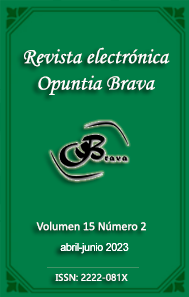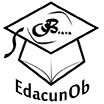Social networking sites: environments for education and political-ideological and general culture reaffirmation.
Keywords:
responsible educational practices, subjects with critical-valuative thinking and educational environments.Abstract
Cuba has proposed, and it has been a fact (2296 Wifi navigation areas; almost 7 million mobile lines; more than 189 thousand homes connected to the Internet and more than one million 250 thousand connections to the Internet through fixed access), to advance in the informatization of the country. The imperative need to resort to communication technologies to work, study, socialize, inform ourselves and even have fun, turned this sector (infocommunications) into a key strategic sector for our economic, social and cultural development. At the same time, against the Cuban Revolution, the U.S. Government has developed a sophisticated system of influences on the Internet, in which it uses digital social networks to impose its subversive agenda and transform Cuba back into a bourgeois liberal republic. Taking into account these scenarios, we present a theoretical-conceptual proposal with some recommendations for responsible educational practices, which allow students, teaching and non-teaching staff of our University, to use social-digital networking sites as subjects with a critical-valuative, discerning, conscious, responsible and committed to the moral values of Humanity, Cuban society and with the defense of the Cuban revolutionary and socialist project. At the same time, to work in an intentional and directed way, with the advantages, strengths and opportunities offered and possessed by these sites, to turn them into educational, formative and developing environments of those subjects with critical thinking, with emphasis on axiological, political, ethical, aesthetic and symbolic resources; therein lies the novelty and relevance of the proposal.
Downloads
References
Borges, G. (2022). Solo juntos es posible parar la tragedia y la mentira. Recuperado de La pupila insomnehttps://lapupilainsomne.wordpress.com/2022/04/09/solo-juntos-es-posible-parar-la-tragedia-y-la-mentira-por-gustavo-borges-revilla/
Borón, A. (18 de febrero de 2020). La crisis de las ciencias sociales y el papel de la universidad. Granma. Recuperado de internet@granma.cu
Calderón, V. R. (2009). Espacios de comunicación multimodal en transmedios. Recuperado http://www.docstoc.com/docs/66478322/Espacios-de-Comunicación-Multimodal-Transmedios
Capote, R. A. (14 de mayo de 2021). La CIA y las redes ilegales de comunicación para la subversión en Cuba. Recuperado de internacionales@granma.cu
García, P. F. (2009). Formación web 2.0. Salamanca: Scopeo.
Gómez, J. (28 de julio de 2020). Guerra mediática: de la racionalidad a la emotividad. Recuperado de internet@granma.cu
Islas, C. y Carranza, M. del R. (2011). Uso de las redes sociales como estrategias de aprendizaje. ¿Transformación educativa?. Universidad de Guadalajara.
Meso, P. M. (2010). Gabinete de Comunicación y educación. Recuperado de http://www.gabinetecomunicacionyeducacion.com/files/adjuntos/Las%20redes%
Ortiz, J. D. (2013). Filosofía y pensamiento crítico. Sincronía, (63), enero-junio. Universidad de Guadalajara. Guadalajara, México. Recuperado de http://www.redalyc.org/articulo.oa?id=513851569020
Saíz, C. y Fernández, S. (2012). Pensamiento crítico y aprendizaje basado en problemas cotidianos. Revista de Docencia Universitaria, 10(3), octubre-diciembre.







.png)



.png)



.png)





















